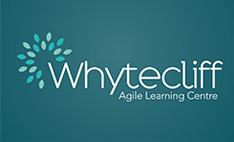Attention deficit hyperactivity disorder (ADHD) is defined as a behavioral disorder that impacts attentiveness, hyperactivity, and impulsiveness. In general, most cases are usually found between the ages of 6 and 12, with symptoms tending to be noticed during a circumstantial change such as starting school. While these symptoms can usually improve with age, there are many adults who continue to struggle with ADHD throughout their lives. It is estimated that the core symptoms of ADHD are manifest in 5% of children and adolescents irrespective of cultural background, with an overrepresentation among boys.
Anxiety and sleeping disorders are also common additional problems associated with ADHD, which can make the struggle all the more difficult for people diagnosed with the disorder. ADHD may also overlap and intertwine with other learning challenges.
How Whytecliff can Help Kids with ADHD
(Note: Unfortunately, at this time, we can only accept children with ADHD into the program who have either an additional special needs designation, or if the child qualifies to work from an IEP in their current school or program. If this is your circumstance, please talk with us.)
Whytecliff offers the BC Ministry of Education accredited curriculum leading to a British Columbia Certificate of Graduation. Whytecliff also incorporates the new BC Curriculum’s intellectual, personal, and social-emotional proficiencies, with a special emphasis on youth development as well as positive mental health and wellness. For children diagnosed with ADHD, Whytecliff adapts and modifies course materials and other aspects of learning to work in concert with each child’s unique strengths and talents as well as their particular learning needs. Our curriculum, which interweaves learning with a therapeutic approach to support, is specifically tailored for each child. Rather than seeking to control ADHD we pursue gentle approaches to increase attentional focus and self-regulation and take each child’s energy and focus it in productive ways.
Central to children’s success is putting each child at the center of their own learning, through “self-paced” and “self-directed” learning. At Whytecliff, each child determines their own specific goals and what individual course to begin working on; this approach improves time and energy management skills (self-regulation) while decreasing frustration-related challenges.
To help improve attention and increase focus, children are able to work on a single course, or to work on a specific project that might incorporate some work from several courses. At the same time, our warm, calm physical environment (with less negative external stimulation) makes it easier for children to concentrate for extended periods of time.
To meet ADHD children’s needs for variety and novelty, we encourage active involvement in gym and offsite sport activities, and offer progressive, interesting, and engaging learning experiences in the community. (Boredom is seldom an issue at Whytecliff). We are also able to provide for frequent breaks and can allow for graduated entry into the program. This way, each child is able to start attending for whatever length of time they have the capacity and resources to be successful.
External Resource:
https://www.mayoclinic.org/diseases-conditions/adhd/symptoms-causes/syc-20350889
